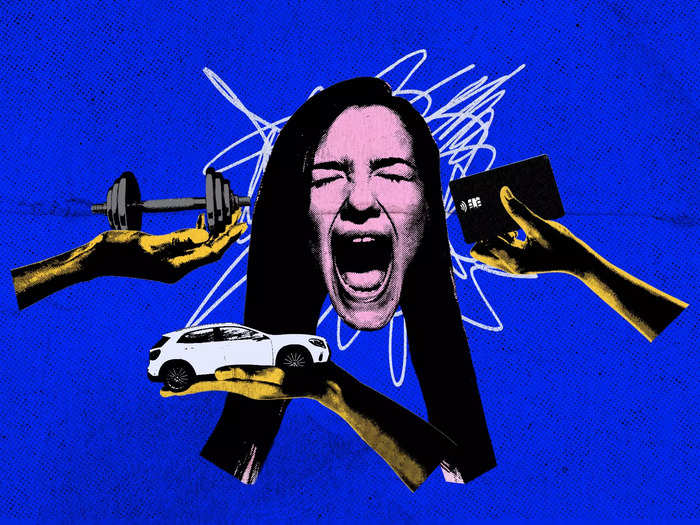Forget Uber and Airbnb: Some people are going back to doing things the old-fashioned way to save money | Business Insider India

🌈 Abstract
The article discusses the end of the "millennial lifestyle subsidy" - a period when various apps and services offered low prices and convenience, subsidized by venture capital. As inflation and higher interest rates have pushed prices up, consumers are now having to find alternatives and adjust their spending habits. The article explores how this shift is affecting people's finances and lifestyles, and the potential long-term implications of the end of these subsidies.
🙋 Q&A
[01] The "Millennial Lifestyle Subsidy"
1. What was the "millennial lifestyle subsidy"?
- The "millennial lifestyle subsidy" refers to a period when various apps and services (e.g. Uber, Blue Apron, WeWork) offered low prices and convenience, subsidized by venture capital, in order to attract a loyal customer base.
2. How has the end of these subsidies affected consumers?
- Consumers who got used to the low prices and luxury experiences are now having to find alternatives, such as going back to the "old-fashioned" way of doing things (e.g. shopping around for hotel deals, taking public transit, working out at home).
- This has required a "recalibration" and adjustment in spending habits for some consumers.
3. What are some examples of how the end of subsidies has impacted people's finances and lifestyles?
- Sarah Manley, an artist and musician, has stopped using Airbnb, rideshare services, and delivery apps due to rising prices.
- Grant Plotkin, a Gen Z consumer, has shifted to using the ferry instead of ride-hailing services, and is comparing prices across platforms more carefully.
[02] Implications of the End of Subsidies
1. How are companies responding to the end of subsidies?
- Companies are pursuing tactics like surge pricing and drip pricing to bring in revenue, which could break customer loyalty and mean lower pay for workers.
2. What are some alternative "subsidies" that consumers are turning to?
- Credit card rewards programs are becoming more popular as consumers try to "maximize ROI" on their spending.
3. How has the end of subsidies impacted different socioeconomic groups?
- The hardest-hit Americans may be those in areas without reliable public transit or few stores, as they can't easily find better deals elsewhere.
- The end of subsidies may be exacerbating some of the inequities that they previously papered over.
[03] Perspectives on Not Having Children
1. What were the main reasons Ann Snyder, a 70-year-old baby boomer, chose not to have children?
- Environmental concerns about rapid population growth and resource depletion were the primary reasons Snyder decided not to have children.
2. How did not having children impact Snyder's finances and lifestyle?
- Not having children gave Snyder and her late husband more financial freedom and flexibility to travel, indulge in hobbies, and not be "sandwiched" between caring for children and aging parents.
3. What are some of the benefits Snyder experienced by not having children?
- Snyder was able to save enough to support herself in retirement, avoided the financial burden of caring for children, and had more time and money to spend on herself and her husband.